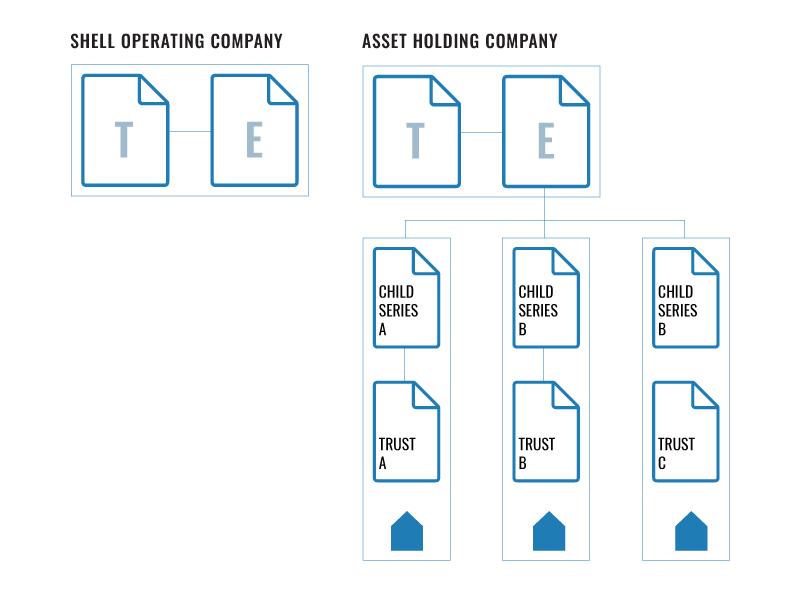How Should I Separate My Personal Property From My Real Estate Investments?
Separating your personal property from your investments is absolutely critical for real estate investors. Ensuring that you do this correctly is important for both saving and making as much money as possible. Also, doing so will ensure your assets are protected.
Fortunately, the law is on your side. Even ice-cold Uncle Sam respects the needs of homeowners. Your home gets certain protections that your investments do not. We will show you below how to take advantage of these protections, establish clear boundaries between your investments, and defend all of your properties with simple legal tools.
Keep Your Home in Your Name
The law distinguishes between your home and your investment properties for a reason. It may not surprise you that this reason comes down to taxes.
Some investors get so fired up about the LLC or Series LLC structure that they want to protect their home by sticking it in a corporate structure, just as they do with their investments. This is a bad call for two reasons:
- You will save far more money keeping it in your own name and taking advantage of the tax benefits, like the homestead exemptions discussed below.
- Having your personal home in your SLLC or other structure will "comingle" your personal property with the company. This is a legal no-no that completely destroys your anonymity and undermines the asset protection properties of the Series LLC.
Know and Exploit Homestead Exemptions
All Americans receive homestead exemptions on the federal level, and 48 of the 50 states offer them at the state level as well. These exemptions are amounts you can claim on your taxes to save you costs related to your home. How much you will save will depend heavily on where you live, but this is fairly easy to research. Of course, our professionals at Royal Legal Solutions are well-versed in this information and are also happy to walk you through it.
However, if you try to use the business strategies for your home, you will almost certainly end up losing access to these exemptions.
Use the Series LLC Structure for Your Real Estate Investments
Of course, you could use other business entities as well. A Traditional LLC is just fine for a single property. But if you're even considering growing your investment portfolio over time, level up to the Series LLC. We tend to recommend the Series LLC for real estate investors, primarily because it comes with all the perks and protections of a Traditional LLC, and many, many more. We're so passionate about this tool because it costs the same as an LLC (sometimes less, depending on your state), but offers asset protection, liability, and taxation benefits.
And it gets better: the Series LLC costs exactly the same as the Traditional LLC, but has a host of additional benefits. The biggest perk for investors is that you have the ability to grow your real estate business infinitely, and create as many Series as you like--and you won't pay a penny more than you would for a Traditional LLC. Essentially, you're getting an infinite amount of LLCs for the price of one. Not all LLCs are equal: the best states to form your Series LLC in are Texas, Delaware, and Nevada.
Ensure You Are Banking Properly
Use personal accounts for matters related to your home. As discussed above, you want your home in your name. So you want to treat any expenses related to your homestead as personal expenses. The best way to ensure the lines don't blur between your own house and your investment properties/corporation is to keep absolutely separate accounts for both.
If you're making a real estate transaction, or an expense related to your rental property, you will want to use a business checking account. The owner of the account isn't you--it's your corporate structure. This will ensure you have the legal standing to prove they are separate entities, should you ever find yourself in court.
Don't worry, you can still pay yourself for your rental properties. Just make sure you're doing it correctly. Check out our play-by-play on how to pay yourself from your LLC structure for more details.
Bottom Line: Separate Business and Pleasure
The old axiom is true. Think of your home as your pleasure palace, and your investments as your business.
We're here to help you set up your Series LLC and everything else you need for a bulletproof asset protection plan. Keep those money-hungry attorneys at bay: take action and set up your $150 consultation today.
